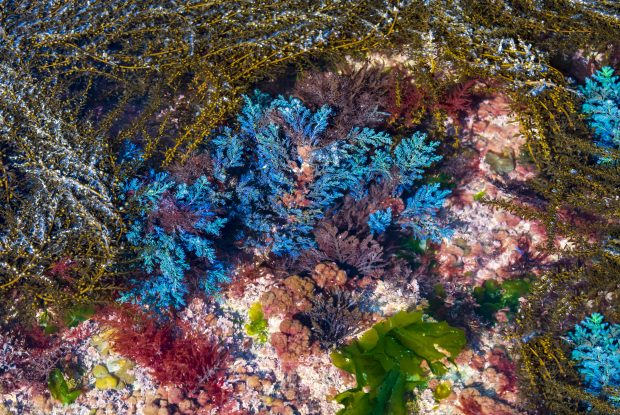Please provide your views in our call for evidence on the assessment of five marine protected areas in England – open until 15 December.
Protecting marine habitats and wildlife is a vital part of the MMO story. In this second blog post we explain how the MMO manages activities affecting marine protected areas (MPAs), such as fishing and recreational activities. We explain our procedures for creating byelaws and give some examples of MPAs which have management in place, and MPAs where we are currently assessing the need for management.
How are MPAs protected?
The MMO is the government’s principal regulator for most activities in English waters. We manage many marine activities affecting MPAs including:
- Marine licensable activities
- Fishing from 6 to 200 nautical miles offshore (nm)
- Marine non-licensable activities from 0 to 12 nm
Other government bodies also manage activities within the marine area, for example:
- Inshore Fisheries and Conservation Authorities (IFCAs) manage fishing from 0 - 6 nm
- Local authorities manage some shore-based recreational activities
What does the MMO do to help?
The MMO is responsible for ensuring that our decisions help further the conservation objectives of MCZs and EMSs. Conservation objectives set out broad ecological aims for an MPA and are determined by the statutory nature conservation bodies (in England - JNCC and Natural England).
The MMO ensures that relevant activities are assessed for their impact upon the protected habitats and species of MPAs and the potential for these activities to hinder its conservation objectives.

How are fishing and marine non-licensable activities managed in MPAs?
The MMO Marine Conservation Team is responsible for managing the impacts of fishing and marine non-licensable activities on MPAs. We can do this through voluntary measures or byelaws.
MMO has the power to make byelaws to further the conservation objectives of:
- Marine Conservation Zones (MCZs), through the Marine Coastal and Access Act 2009, and
- European marine sites (EMSs, which include special areas of conservation, SACs, and special protection areas, SPAs) through the Conservation of Habitats and Species Regulations 2017.
The Fisheries Act 2020 extends MMO byelaw making powers from January 2021, allowing us to create byelaws to protect offshore MPAs (12 nm to 200 nm) as well as inshore (0 to 12 nm).
The Marine Conservation Team conducts assessments of fishing and marine non-licensable activities to determine whether these activities are compatible with the conservation objectives of MPAs. In doing so, we rely on advice from our statutory nature conservation bodies – Natural England and the Joint Nature Conservation Committee. Any non-compatible activities may require management.
Where management is necessary the MMO completes impact assessments to capture the likely economic, social and environmental costs and benefits of these management proposals.
The MMO consults stakeholders on any proposed management measure to ensure views and any additional evidence on the impacts of activities in MPAs are considered. Our stakeholders are a key part of the MMO story and we are looking to engage and work collaboratively to help achieve our shared objectives.
Where necessary the MMO then makes byelaws to control the relevant activities. MMO byelaws generally come into force after confirmation by the Secretary of State, however where there is an urgent need for protection, the MMO can also make emergency byelaws. Emergency MMO byelaws are time-limited, but come into effect without the need for confirmation by the Secretary of State.
The MMO is then responsible for monitoring and assuring compliance with the new byelaw, as well as reviewing its effectiveness.
Which sites in England have MMO byelaws in place and why?
The MMO currently has byelaws in place for six MPAs in England.
All current MMO byelaws restrict the use of bottom towed fishing gear. Bottom towed gear includes gear types which are towed on the seabed, for example: beam trawls, otter trawls and dredges.
These byelaws were introduced because the MMO concluded that bottom towed fishing was not compatible with the conservation objectives of these MPAs, and that introducing these byelaws would further the conservation objectives of the MPAs.
| MPA | Prohibits | Protects | |
| 1 | Inner Dowsing, Race Bank and North Ridge SAC | Bottom towed fishing gear in specified areas | Biogenic reefs built by Ross worms (Sabellaria spinulosa) |
| 2 | Haisborough, Hammond and Winterton SAC | ||
| 3 | Land’s End and Cape Bank SAC | Bedrock reef | |
| 4 | Start Point to Plymouth Sound and Eddystone SAC | ||
| 5 | Margate and Long Sands SAC | Sandbank | |
| 6 | West of Walney MCZ | Sea-pen and burrowing megafauna communities, subtidal sand and subtidal mud. |
The MMO are currently assessing the need for management for fishing in four offshore MPAs:
- The Canyons MCZ
- South Dorset MCZ
- Dogger Bank SAC
- Inner Dowsing, Race Bank and North Ridge SAC
In addition we are also currently assessing the need for management of a range of non-licensable activities in Studland Bay MCZ.
The Marine Conservation Team at the Marine Management Organisation are building up their stakeholder contacts database. If you are interested in being contacted by the Marine Conservation Team regarding Marine Protected Areas in England, please contact them with the text below via conservation@marinemanagement.org.uk. Please use the email subject “Contact me”.
“I give my permission to be contacted by the Marine Conservation Team at the Marine Management Organisation regarding Marine Protected Areas in England.
In particular, I am interested in [please detail MPAs, activities etc.]
[Insert full name and organisation]”